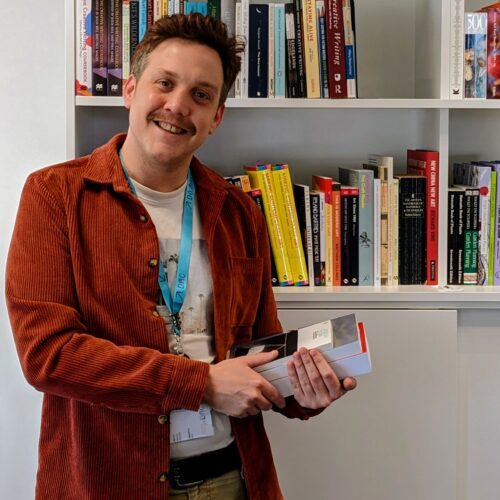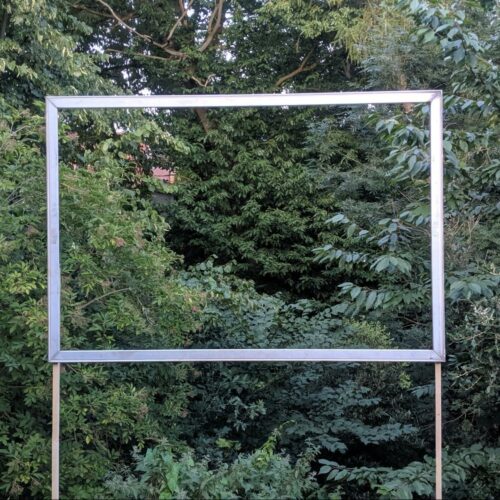
Equality, Diversity and Inclusion group meeting one: Outcomes
This post highlights the discussion that took place during the first diversity listening session, which took place on 20 January 2021, and outlines the date, time, location and context for the next session, which will take place next month.
Firstly, thank you to those who attended the listening session and for your valuable contributions. The meeting included a mixture of tutors, students (including student representatives) and other OCA staff.
The meeting started with an outline of OCA’s commitment to equality, diversity and Inclusion. This included three practical steps towards improvement:
- Unconscious bias training for staff and tutors
- Bringing in ‘different voices through visiting lectureships and through scholarship schemes for students from minority or excluded groups.
- Curriculum improvement – creating an inclusive and multicultural/intersectional curriculum drawing on lived experience
The timescales for unconscious bias training were discussed as tutor training would be welcome as soon as possible. The group discussed whether this can be perceived in some organisations as a ‘tick box’ exercise and concluded that we could establish live training sessions with experts such as Dr. Pragya Agarwhal to make it much more relevant and authentic. The group agreed that this should be explored, and available not just to staff and tutors but to students and the wider OCA community.
We spoke about Periodic Review and how timely this 5 yearly health check has been, that is to say, it has meant that we have begun to survey existing, and create new materials, through an EDI lens. This was welcomed. The group also discussed the importance of lived experiences within the curriculum and the development of ‘student led reading lists’ to establish a co-designed curriculum with OCA students as contributors. Excitingly, work has already begun here, notably through the short courses and the level 3 Moving Image and Photography units, as well as those courses that have successfully been scrutinised through Periodic Review. It is reassuring to hear from the group that more of this is welcome.
The group prompted a discussion on multiculturalism, about perceptions of middle classness, in language and action, and that EDI goes far beyond ethnicity. We exchanged anecdotes on student experiences of exclusion. These were discussed and the group exchanged ideas on how to establish ‘safe spaces’. One of which is the EDI group, which is beginning to establish itself as an inclusive and open space of meaningful exchange where people can learn, grow and through which meaningful change at OCA will happen.
A debate on our responsibility to be politically active on this subject and how we can ensure more radical organisational change. We looked at how recruitment has been, and continues to be reshaped, and how this will be used to appoint two new trustees with a remit on diversifying the Board and creating a Board which better represents OCA students and EDI objectives. The group discussed how that could be achieved, and agreed that having EDI representatives from this group on the selection and appointment panel would be a good way to ensure we get outcome. The group also discussed how we go about recruitment to reach into communities and avoid the usual ‘London Centric’ recruitment approach since we have many students from different regions and nations, backgrounds, cultures, beliefs and personalities we therefore need to challenge the recruitment team to go out and find trustees to act as advocates for them. It was articulated that we had success last time through this when appointing Marie-Claire Iaasman. We agreed that the recruitment brief would be shared in this group for feedback and suggestions. One of the group members has 20 years experience in recruitment and indicated that they can offer advice if needed on the process because of their background. This is of course most welcome.
There was a further discussion about ‘what OCA aspires to be’ in relation to its values, and who OCA look to as role models in this space. There was a further discussion on recruitment, in particular focussing on tutor recruitment. It was noted and explained that there were a large number of new tutors needed over the coming months to manage the new influx of students. It is an opportunity to reconsider every step of the process from the language in the advert, the communities it reaches, the encouragement to apply (and support to train) and the removal of any affinity bias by the panel in selection. This had led to improvement in the two most recent appointments however it is still early days and there was more to learn on this.
There was a suggestion that OCA holds a student competition on the theme of diversity and inclusion so we can showcase and celebrate student work tackling the many facets of the subject. This idea was welcomed and will now be investigated. So, keep a lookout for an opportunity to showcase and celebrate your work on diversity – if you are making political, poetic, confrontational or taking another kind of approach you are wholly encouraged to take part.
There was a debate about ‘big steps v small steps’ to create change, and the group concluded that both are needed and small steps help to demonstrably show improvement between EDI sessions. A suggestion was put forward that those in the sessions could form a ‘project team’ to galvanise the work. Small amounts of funding could be set aside to support the work. The group concluded by agreeing that more of these sessions were needed and perhaps more frequently so we would look to have another EDI listening session in a month’s time.
Indeed, the meeting was a really positive first step where a group of people drawn from all levels and areas of the OCA were able to begin the process of sifting through where we have got to, where we might get and how we might get there in terms of diversity and inclusion.
The next meeting has been scheduled for a month’s time to keep up the early momentum. We will establish a project team, outline its remit and consider budget – all steps towards getting organised by turne becoming more organised and effective and our efforts can be accounted for. With a vision, strategy and lots of small incremental steps we will go a long way in achieving a seismic change we can all be proud of, and we can all be part of.
This is incredibly important and exciting. We welcome more of you to join us in shaping this vision at our next meeting on:
19 February 2pm
|
|







Sorry I missed this. I’d very much like to attend the bnext meeting but I got the ‘Unable to join at this time’ at the top of the form.
I also got the unable to join message and would like to join this meeting please
Hi there, this should work now. Would you like to try again? Please let me know if you have any further issues. All the best and see you at the meeting
Interesting reading, thanks for sharing.
Craig